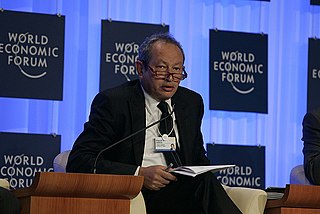Restitution and unjust enrichment is the field of law relating to gains-based recovery. In contrast with damages, restitution is a claim or remedy requiring a defendant to give up benefits wrongfully obtained. Liability for restitution is primarily governed by the "principle of unjust enrichment": A person who has been unjustly enriched at the expense of another is required to make restitution.

English trust law concerns the protection of assets, usually when they are held by one party for another's benefit. Trusts were a creation of the English law of property and obligations, and share a subsequent history with countries across the Commonwealth and the United States. Trusts developed when claimants in property disputes were dissatisfied with the common law courts and petitioned the King for a just and equitable result. On the King's behalf, the Lord Chancellor developed a parallel justice system in the Court of Chancery, commonly referred as equity. Historically, trusts have mostly been used where people have left money in a will, or created family settlements, charities, or some types of business venture. After the Judicature Act 1873, England's courts of equity and common law were merged, and equitable principles took precedence. Today, trusts play an important role in financial investment, especially in unit trusts and in pension trusts. Although people are generally free to set the terms of trusts in any way they like, there is a growing body of legislation to protect beneficiaries or regulate the trust relationship, including the Trustee Act 1925, Trustee Investments Act 1961, Recognition of Trusts Act 1987, Financial Services and Markets Act 2000, Trustee Act 2000, Pensions Act 1995, Pensions Act 2004 and Charities Act 2011.

English contract law is the body of law that regulates legally binding agreements in England and Wales. With its roots in the lex mercatoria and the activism of the judiciary during the Industrial Revolution, it shares a heritage with countries across the Commonwealth, from membership in the European Union, continuing membership in Unidroit, and to a lesser extent the United States. Any agreement that is enforceable in court is a contract. A contract is a voluntary obligation, contrasting to the duty to not violate others rights in tort or unjust enrichment. English law places a high value on ensuring people have truly consented to the deals that bind them in court, so long as they comply with statutory and human rights.
Banque Financiere de la Cite v Parc (Battersea) Ltd [1998] UKHL 7 is an English unjust enrichment case, concerning the framework for a claim.
The English law of unjust enrichment is part of the English law of obligations, along with the law of contract, tort, and trusts. The law of unjust enrichment deals with circumstances in which one person is required to make restitution of a benefit acquired at the expense of another in circumstances which are unjust.

Lipkin Gorman v Karpnale Ltd[1988] UKHL 12 is a foundational English unjust enrichment case. The House of Lords unanimously established that the basis of an action for money had and received is the principle of unjust enrichment, and that an award of restitution is subject to a defence of change of position. This secured unjust enrichment as the third pillar in English law of the law of obligations, along with contract and tort. It has been called a landmark decision.

Philip Collins Ltd v Davis [2000] 3 All ER 808 is an English unjust enrichment case, an example of a restitution claim and the change of position defence.
The English law of Restitution is the law of gain-based recovery. Its precise scope and underlying principles remain a matter of significant academic and judicial controversy. Broadly speaking, the law of restitution concerns actions in which one person claims an entitlement in respect of a gain acquired by another, rather than compensation for a loss.
BP Exploration Co (Libya) v Hunt [1983] 2 AC 352 is an English contract and unjust enrichment case, concerning the frustration of an agreement.

Wiluszynski v London Borough of Tower Hamlets [1989] ICR 439 is a UK labour law case concerning the contract of employment. It held that if an employment was only partly performed due to a strike, this could be construed as not completing an entire obligation, so that even if an employer has received much more value, they need to pay nothing.

Westdeutsche Landesbank Girozentrale v Islington LBC[1996] UKHL 12, [1996] AC 669 is a leading English trusts law case concerning the circumstances under which a resulting trust arises. It held that such a trust must be intended, or must be able to be presumed to have been intended. In the view of the majority of the House of Lords, presumed intention to reflect what is conscionable underlies all resulting and constructive trusts.
Falcke v Scottish Imperial Insurance Co (1886) 34 Ch 234 is an English unjust enrichment law case, which also concerns English contract law. It sets out some fundamental principles of construction of obligations, as viewed to exist by the late 19th-century English judiciary.
Peel v Canada [1992] 3 SCR 762 is a Canadian unjust enrichment law case, concerning the nature of an enrichment.

McDonald v Coys of Kensington (Sales) Ltd [2004] EWCA Civ 47 is an English unjust enrichment law case, concerning the nature of an enrichment.

Kleinwort Benson Ltd v Birmingham CC [1996] 4 All ER 733 is an English unjust enrichment law case, concerning to what extent enrichment of the defendant must be at the expense of the claimant. It rejected a defence of "passing on" the gain against a claim of unjust enrichment.

Roxborough v Rothmans of Pall Mall Australia Ltd is an Australian unjust enrichment law case, concerning to what extent enrichment of the defendant must be at the expense of the claimant.
Relfo Ltd v Varsani [2014] EWCA Civ 360 is an English unjust enrichment law case, concerning to what extent enrichment of the defendant must be at the expense of the claimant.

Benedetti v Sawiris[2013] UKSC 50 is an English unjust enrichment law case, concerning the method for determining the amount of a quantum meruit claim. It was decided by the United Kingdom Supreme Court.

Chief Constable of Greater Manchester Police v Wigan Athletic AFC Ltd[2008] EWCA 1449 is an English unjust enrichment case, concerning the meaning of enrichment.

Marcic v Thames Water plc [2003] UKHL 66 is a UK enterprise law and English tort law case, concerning water in the UK.











